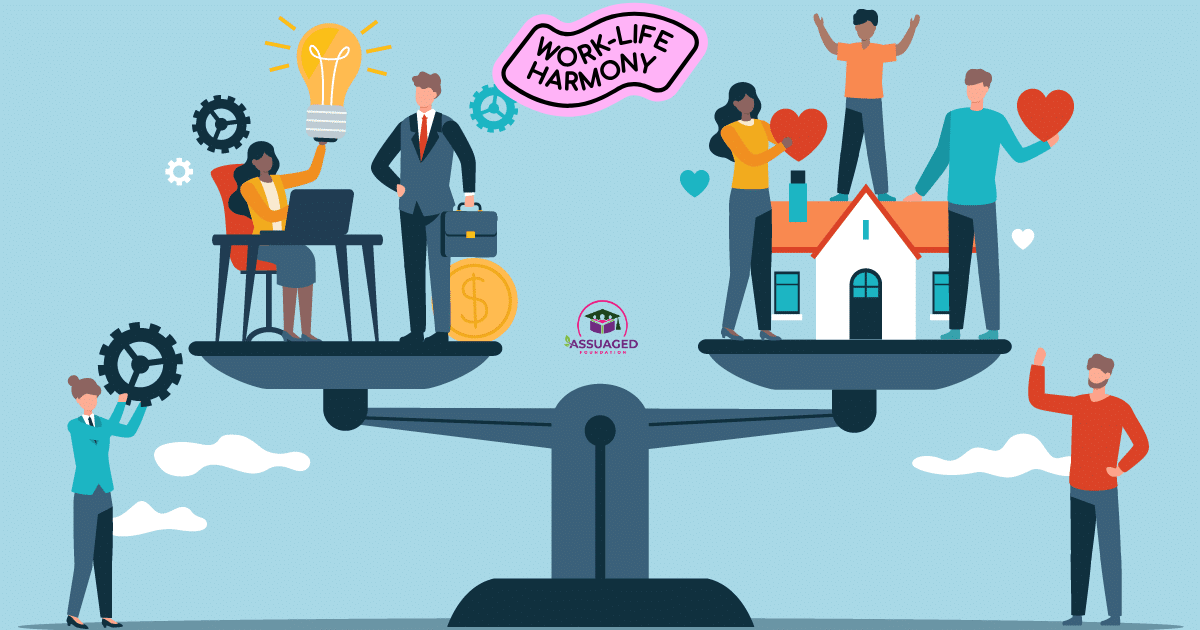Unplug Without Missing a Beat: Protecting Your Health and Productivity
In today’s always-on world, work doesn't end when you leave the office. Instead, emails, texts, and notifications often follow us home, demanding attention after hours. It’s tempting to think, "Well, I’m just answering a quick email," but work-related communication after hours is rarely just one message. It creates a culture where we feel obligated to respond, slowly eroding the boundary between work and personal time [18]. Staying connected, but research reveals that the cost is far higher than we realize—for our health, our families, and even our performance at work[6] .While connectivity might appear beneficial, allowing flexibility and productivity [16] , it can blur the boundaries between work and personal life, leading to several health issues [7], including increased stress, anxiety, and work-life conflict. After all, productivity isn’t about working more; it’s about working well—and that means valuing the time we spend outside work just as much as the time we spend on the job.

The Hidden Cost of Staying Connected After Hours
Employees who regularly use work devices at home are more likely to feel stressed and experience family conflict [3], which can ripple into disrupted relationships and emotional strain.
Work-related smartphone use outside working hours also leads to digital burnout [10], a form of mental exhaustion fueled by our inability to truly "clock out."
This constant connectivity increases depressive symptoms in workers who feel pressured [4]to stay reachable. It’s a reminder that when it comes to work-life balance, we all have a breaking point.
When Work Follows You Home: The Health Risks of Being "Always On"
Frequent work-related communications outside of regular hours contribute to work-family conflict, psychological distress, and even sleep disturbances. [15].Research further underscores the role of family interference with work [2] and vice versa, noting that individuals who frequently engage in work-related communications outside regular working hours face increased work-family conflict.
When work-life boundaries blur, employees struggle to mentally detach from their work, leading to inadequate rest and reduced recovery time [9]. This "constant connectivity" can result in what is known as "emotional exhaustion [8]," highlighting how after-hours information and communication technology use fuels burnout.
There exists a clear link between after-hours use of work-related communication devices and depressive symptoms, especially among workers who may feel compelled to remain accessible for job security.[11]

Why The Right Way To Disconnect Matters for Everyone
The right to disconnect isn’t just about taking time off—it’s about creating a healthier, more balanced way to work in an increasingly connected world. By giving ourselves the freedom to disconnect, we’re investing in our well-being, strengthening our relationships, and protecting our mental health. As companies and countries move toward recognizing this right, employees can start taking small steps to reclaim personal time.
Fostering a Healthy Communication Culture
Research suggests that employees given the choice to disconnect feel less stressed and have stronger boundaries between work and home, leading to better mental health and productivity. Employees who can disconnect from work tend to be happier, [12] while continuous connectivity risks diminishing employee well-being.
The goal isn’t to abandon all flexibility but to balance it. Companies don’t need to overhaul everything to make a big difference. By setting clear expectations and encouraging employees to unplug outside work hours, they can foster a healthier work culture.
Research suggests that organizations adopting "integration preference"[1] policies where employees can choose their availability outside work hours, report lower stress levels, and reduce family conflict. Policies like this offer flexibility while respecting employees' mental and emotional boundaries.[13]
Steps You Can Take To Unplug-Without Missing a Beat
While companies are taking steps, individuals can also create habits to unplug more effectively:
-
Set Tech-Free Zones: Designate parts of your home as tech-free, like your bedroom or dining area, to mentally separate work from home life.
-
Use "Do Not Disturb" Modes: Many smartphones allow you to silence work notifications at specific times. Setting this up for evenings can give you a mental break.
-
Communicate boundaries: Let your team know your availability outside working hours. Often, colleagues will respect your boundaries when they’re clear.
-
Practice Intentional Check-Ins: Instead of checking your email sporadically throughout the evening, designate one time to check if necessary. This practice can help you stay focused without feeling tethered to work.
Policy Measures: Protecting Employees' Right to Disconnect
Given the health risks associated with after-hours work communication, several policy approaches have emerged to safeguard employees’ right to disconnect.[20] France’s "right to disconnect" law mandates that companies establish policies limiting after-hours communication to prevent burnout. Similarly, Germany encourages employers to limit after-hours contact and promote healthy work-life balance norms. [14]
In the U.S., while no federal regulations exist regarding the right to disconnect, employment law experts suggest that employers should compensate [19] non-exempt employees for after-hours work, including calls, emails, and texts. Organizations are encouraged to set clear boundaries,[13] ensuring that employees are not required to remain accessible outside working hours.
The Way Forward: Encouraging Healthy Work-Life Boundaries
The evidence from various studies highlights the importance of structured after-hours communication policies in promoting employee well-being. Addressing the mental health and work-life balance challenges posed by after-hours connectivity requires a collaborative effort between policymakers, employers, and employees. By advocating for the right to disconnect,[17] providing compensation for after-hours work, and fostering a supportive communication culture, organizations can improve employee health and productivity. As the line between work and personal life continues to blur in our digitally connected world, adopting and enforcing these policies has never been more crucial.















